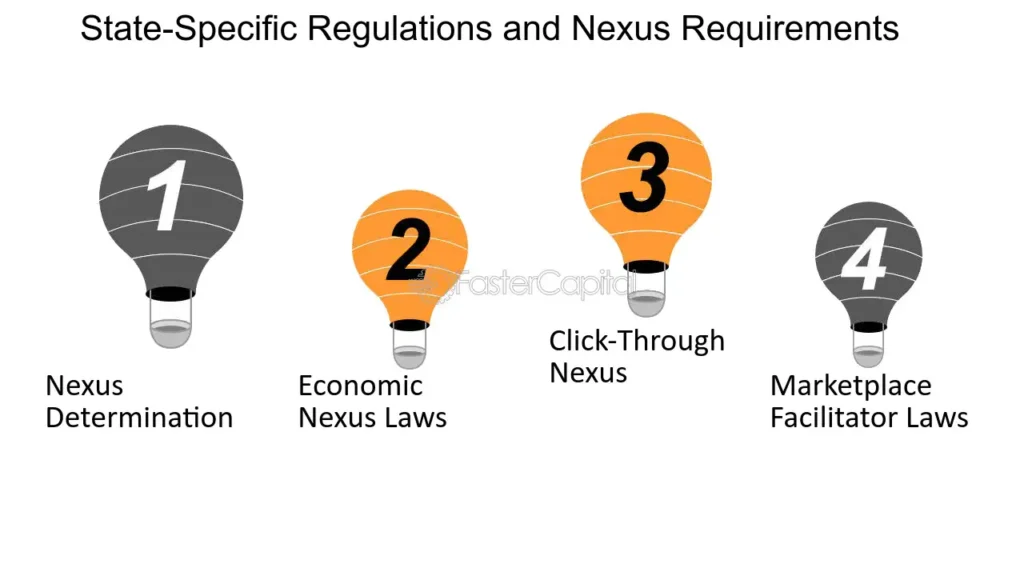When it comes to taxes, many individuals and businesses focus on income tax and sales tax, but one often overlooked area is state-specific use tax laws. While sales tax is commonly paid at the point of purchase, use tax applies when goods are purchased outside a state but used within that state. Understanding these laws is crucial to avoid penalties and ensure compliance with your state’s tax regulations. This article will explain state-specific use tax laws, their importance, and how they apply to both individuals and businesses.
Also Read: Appealing IRS Tax Decisions

What Is Use Tax?
Use tax is a type of tax that is imposed on goods purchased for use in a state but where sales tax was not paid at the time of purchase. This typically happens when products are bought from out-of-state retailers or online stores that do not charge sales tax. The primary purpose of state-specific use tax laws is to level the playing field between local businesses, which collect sales tax, and out-of-state retailers who may not.
The use tax rate is usually the same as the sales tax rate in the state where the goods are used. This ensures that in-state and out-of-state purchases are taxed equally. Most states in the U.S. impose use tax to protect their revenue streams and maintain fairness in the market.
How State-Specific Use Tax Laws Work
State-specific use tax laws can vary slightly depending on the state, but generally, they follow a similar pattern. Here’s how they typically work:
- Purchases Outside the State: When you purchase goods from out-of-state vendors, whether online or in-person, and the seller does not charge sales tax, you are responsible for paying the equivalent use tax to your home state.
- Tax Rate: The use tax rate is usually the same as the state’s sales tax rate. For example, if your state’s sales tax rate is 7%, the use tax rate will also be 7% for any applicable purchases.
- Filing Requirements: Depending on the state, you may need to report use tax on your personal income tax return or through a separate use tax return.
Each state has its own guidelines on how to report and pay use tax. Some states require businesses to file monthly or quarterly, while individuals may report it annually.
Key Differences Between Sales Tax and Use Tax
It’s important to understand the key differences between sales tax and use tax, as they often come into play in various purchasing scenarios:
- Sales Tax: This is a tax imposed by the state or local government at the point of sale. The tax is collected by the retailer and remitted to the state. It typically applies to goods and services purchased within the state.
- Use Tax: This tax applies when you buy goods outside of the state (such as from an online retailer) and bring them into your state for use. Use tax ensures that in-state businesses are not unfairly disadvantaged by out-of-state competition.
While both taxes are similar in their rates, state-specific use tax laws ensure that you cannot bypass tax obligations just by purchasing goods out-of-state.
Also Read: Inheritance Tax Laws 2024

The Importance of Compliance with Use Tax Laws
Complying with state-specific use tax laws is essential for several reasons:
- Avoid Penalties and Fines: Failing to pay use tax can result in penalties, interest, and audits. States actively track out-of-state purchases, especially online transactions, and may require businesses and individuals to provide records.
- Fair Competition: By paying use tax, you contribute to maintaining a level playing field for local businesses, which must collect sales tax on every purchase.
- State Revenue: Use tax helps states collect revenue that would otherwise be lost due to out-of-state sales. This revenue is used to fund state services and infrastructure.
Understanding the legal requirements for use tax and staying compliant will help you avoid unnecessary financial strain.
State-Specific Use Tax Laws in 2024
As of 2024, state-specific use tax laws continue to evolve, particularly with the rise of e-commerce. Many states have started requiring online sellers to collect sales tax or report transactions, but there are still scenarios where use tax applies.
1. E-Commerce and Use Tax
In the wake of the 2018 Supreme Court decision in South Dakota v. Wayfair, many states now require online retailers to collect sales tax on purchases, regardless of whether the seller has a physical presence in the state. However, in cases where the seller does not collect tax, the buyer may be responsible for reporting and paying the use tax.
2. Economic Nexus Laws
Some states have implemented economic nexus laws, which require sellers to collect sales tax if their sales exceed certain thresholds, even if they do not have a physical presence in the state. These laws directly impact both businesses and consumers, making state-specific use tax laws even more important to understand.
3. State Variations
Each state has its own rules for how to handle use tax, so it’s essential to check with your state’s tax authority for the most up-to-date information. Some states may allow online filing, while others require paper forms.
Common Scenarios Where Use Tax Applies
There are many common scenarios where state-specific use tax laws apply. Some examples include:
- Online Shopping: If you purchase products from an online store that doesn’t charge sales tax, you may be responsible for paying use tax.
- Purchasing from Out-of-State Sellers: When buying from out-of-state retailers who don’t have a physical presence in your state, use tax applies.
- Purchasing in Other States for Personal Use: If you travel to another state and buy goods for use in your home state, you might be required to pay use tax when you bring those goods back.
These scenarios demonstrate how use tax laws apply to everyday purchases, particularly in an increasingly digital marketplace.
How to Report and Pay Use Tax
Reporting and paying use tax typically involves the following steps:
1. Keep Records of Your Purchases
When making out-of-state purchases, it’s crucial to keep detailed records of the transaction, including receipts, invoices, and shipping information. These will serve as proof of purchase when reporting use tax.
2. Report Use Tax on Your Tax Return
In many states, you will report use tax on your state income tax return. The specific line and form vary by state, but typically, there will be a section for “use tax” on the return. If you are a business, you may need to file a separate use tax return.
3. Pay the Tax
Once you’ve reported your use tax, you’ll need to remit the payment. Some states offer online payment options, while others may require you to mail in a check.
Strategies for Minimizing Use Tax Liability
Here are some strategies for minimizing your use tax liability:
- Shop from In-State Retailers: Buying from local retailers ensures that you pay sales tax at the time of purchase, rather than needing to report use tax later.
- Understand Exemptions: Some states offer exemptions for certain types of purchases, such as items used for resale. Make sure to check if you qualify for any exemptions.
- Consider Tax Software: Many states offer online tools and tax software to help businesses and individuals track and report use tax more efficiently.
Frequently Asked Questions About State-Specific Use Tax Laws
1. Do I need to pay use tax on all out-of-state purchases?
Not all out-of-state purchases are subject to use tax. However, if the seller does not collect sales tax and you bring the goods into your home state, you may be responsible for paying use tax.
2. How do I report use tax if I don’t file a state income tax return?
In some states, you can file a separate use tax return if you are not required to file a state income tax return.
3. Can businesses claim exemptions from use tax?
Yes, businesses may be eligible for exemptions from use tax, especially if they are purchasing goods for resale. Check your state’s exemption rules for more details.
4. What happens if I don’t pay use tax?
If you fail to pay use tax, you may face penalties and interest on the unpaid amount. The state could also audit you and require you to pay the tax owed.
5. How do I know if a seller collects sales tax?
If a seller collects sales tax, it will typically be stated clearly on the invoice or checkout page. If the seller does not collect sales tax, you will be responsible for paying use tax in your home state.
Conclusion
Understanding state-specific use tax laws is essential for both individuals and businesses in 2024. As the landscape of e-commerce and interstate transactions continues to evolve, staying informed and compliant with use tax regulations ensures that you avoid penalties and contribute to state revenues. Whether you’re an individual buyer or a business owner, knowing when and how to pay use tax will help you navigate your tax obligations with confidence.

2 thoughts on “State-Specific Use Tax Laws: A Comprehensive Guide for 2024”